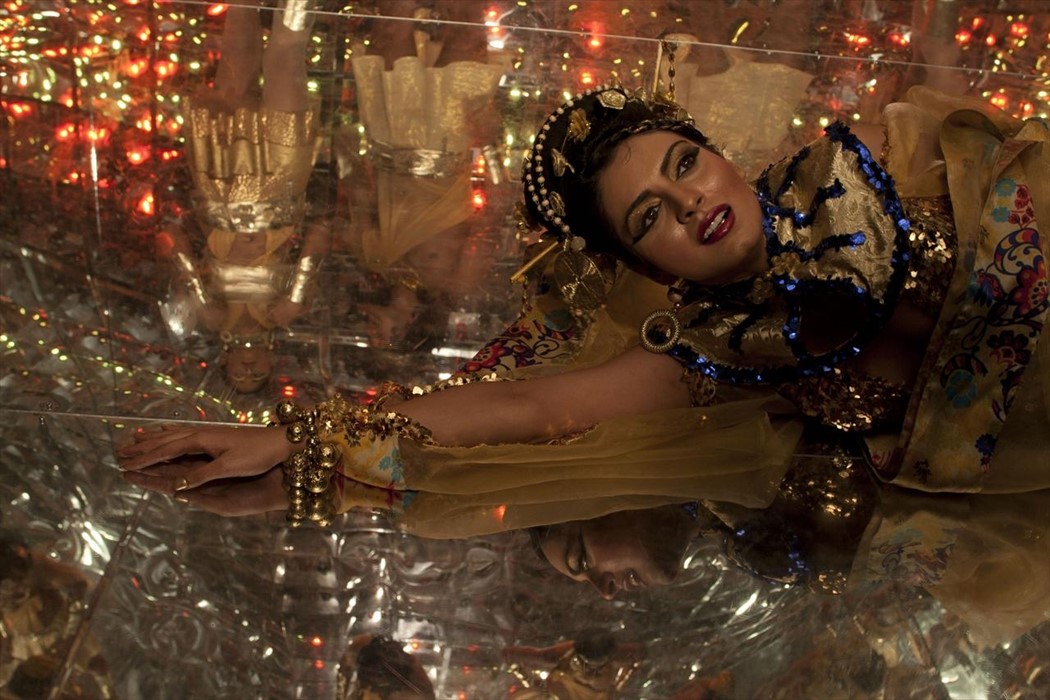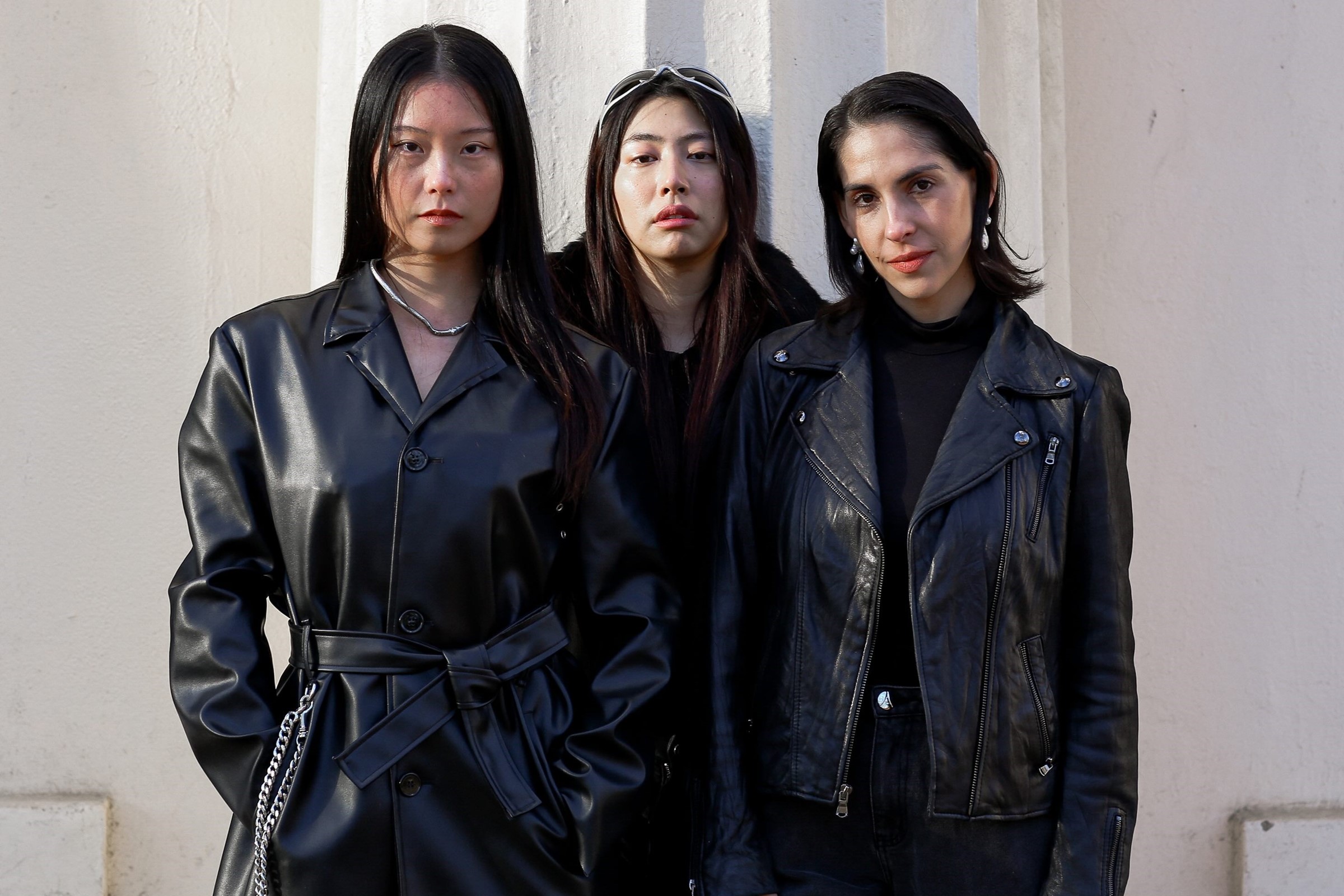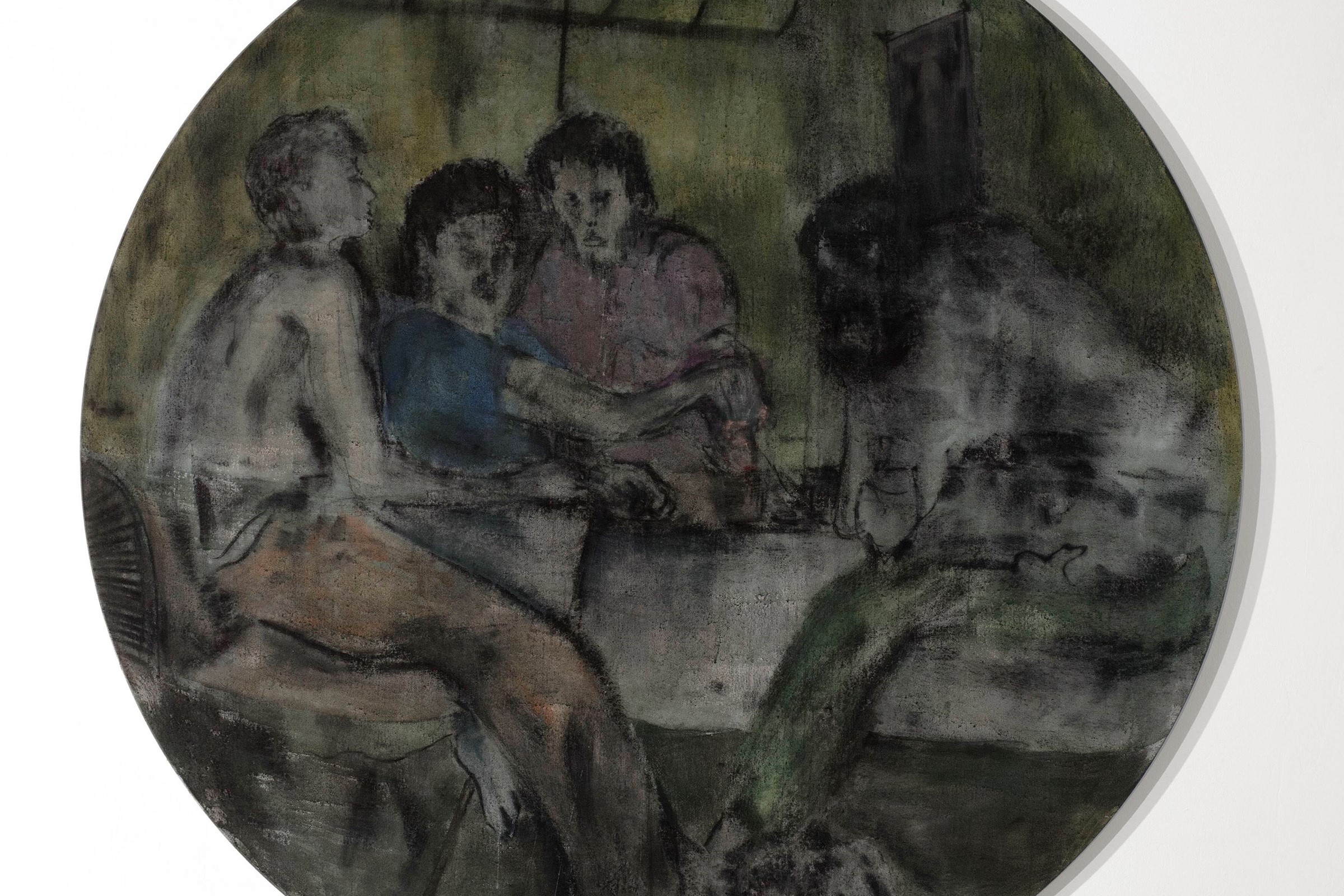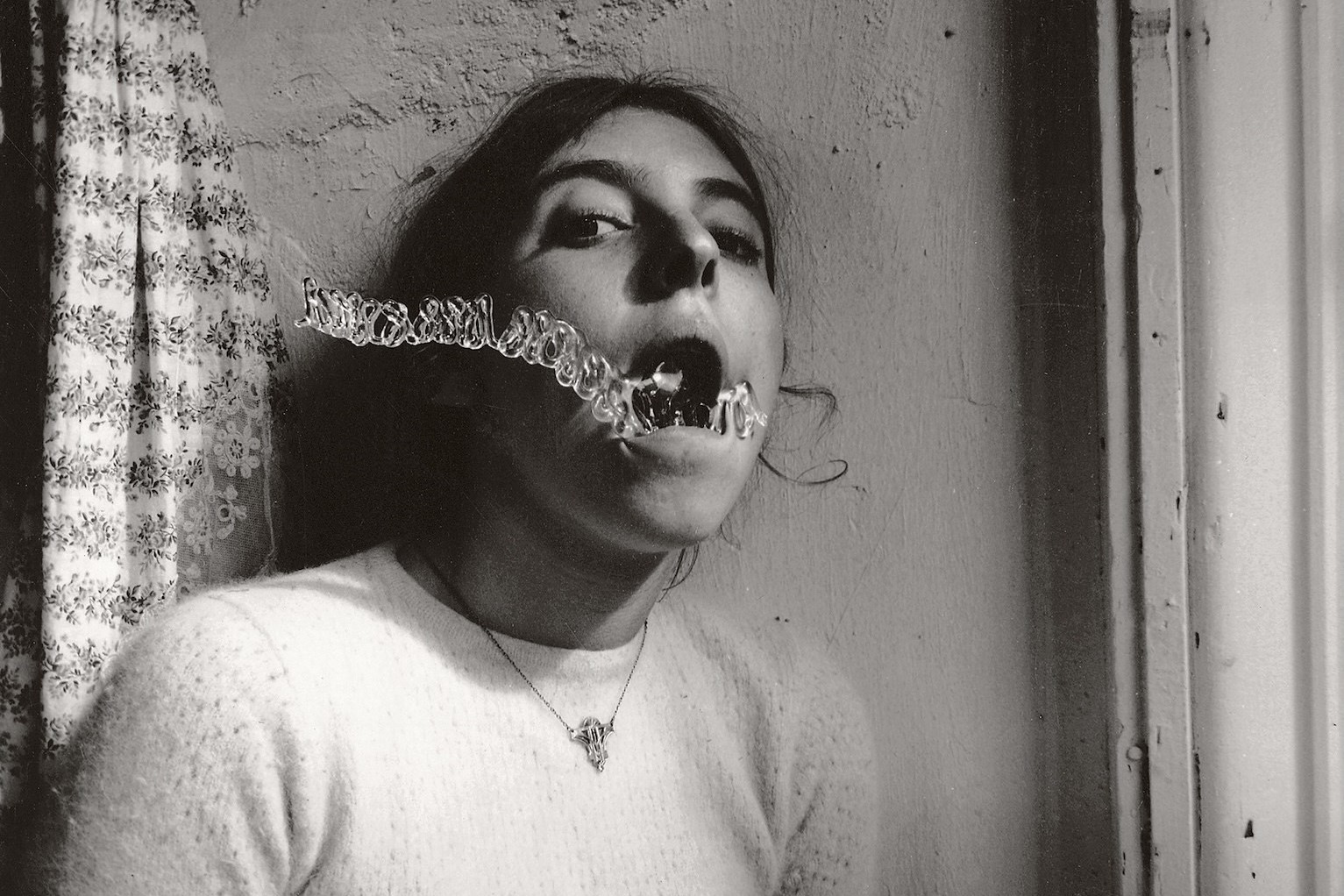Among all that glitters at Cannes Film Festival, there was little quite as visually spectacular as Miss Lovely, directed by Ashim Ahluwalia as part of India’s New Wave scene...
Among all that glitters at Cannes Film Festival, there was little quite as visually spectacular as Miss Lovely, directed by Ashim Ahluwalia as part of India’s New Wave scene. In the midst of India’s moralistic and conservative codes of censorship, Miss Lovely dived into the world of the secret sex and horror C-movie scene of 80s Bombay. Constantly moving and switching between genre pieces – a gangster flick then a love story then an art house film. Stylistically it’s reminiscent of 90s Chinese cinema such as Chungking Express than anything you’d associate with the Bollywood tradition while the wonderfully extravagant costumes and sets call to mind Rainer Fassbinder’s The Bitter Tears Of Petra von Kant. A young ambitious filmmaker battles for recognition against his violent older brother and mob bosses. When a beautiful young actress turns up and captures his heart, his woes deepen further as her secret past is slowly revealed. Ashim Ahluwalia speaks to AnOther about the issues of making Miss Lovely and getting it shown in light of India’s conservatism and the industry’s anti-progressive gender roles.
Is the story of Miss Lovely based on actual events?
Yes, they were all stories of real people. Eight years ago or so I’d planned a documentary on the C grade sex/horror industry in India because that’s illegal, pornography’s illegal in India, you can barely show a kiss. I was really fascinated by the criminal filmmaker that had to shoot the stuff clandestine. They would shoot the porn bits separately and insert the sex into what would otherwise be a conventional horror film, which is what you see at the beginning of the film.
Why did you make it a fiction rather than a documentary?
I met everybody in the industry and I was ready to shoot and then nobody wanted to talk on camera. They said: “What I told you in the bar the other night, there’s no way I’m going to say that!” There’s gangland money, a lot of the actresses are prostitutes, there’s no way people are going to start telling their story. So I had all these anecdotes about these characters I didn’t know what to do with the stuff, so that became the basis of the script for Miss Lovely.
Have you experienced anything of that world?
It’s totally different to what I would do. I went to film school in New York. I moved back and couldn’t relate to Bollywood. So that’s when I got fascinated by these guys because I thought this was a space I could relate to, people that are just making things on the margins, a certain rebellious spirit, I could relate to that world.
"Among all that glitters at Cannes film festival, there was little quite as visually spectacular as Miss Lovely, directed by Ashim Ahluwalia as part of India’s New Wave scene."
Did you go to see these films as kid?
Yeah, because it was the only place you could see nudity. I never really like Bollywood. Even as a kid I would watch more weird horror stuff and sex stuff because I wanted to see a tit or whatever, and that always stayed with me as an image more than the star driven Bollywood films.
Was part of motivation for the film to make a political and cultural point about censorship?
The fragmentation of it annoys a lot of people sometimes, they say: “I thought I came to see a thing on pulp and now I’m watching an art house movie.” That’s a political point, the structure of the film’s very political, the way it takes you somewhere, moves you somewhere else, switches. It’s like a gang bang of genre stuff, it starts as a thriller, so you think it’s a thriller at some points it becomes very art house. I think that’s very political because Indian cinema otherwise just becomes a series of clichés. And we’re breaking the cliché because you start somewhere and you go somewhere else, your expectations are perpetually messed with.
Stylistically it’s reminiscent of Chinese cinema in 90s and late 80s, what were your reference points?
A lot of people ask me whether it’s Boogie Nights, but that’s actually not my space at all. The stuff I really like is the Japanese New Wave cinema from the 60s which influenced the Chinese stuff; Wong Ka Wai was really influenced by the makers I love like Shohei Imamura, Nagisa Oshima. Coming from a certain place where they had to work within the studio system where they had to make a teenage summer film, but then they’d do something really dark with that. And I loved the idea of a pop film that has this dark edge to it, and there’s where I think the Asian influence comes form, I love that.
What do you expect from censors in India?
The censors are going to rip it apart on many fronts. There’s not actually that much nudity in it, I think there’s only one breast shot, it’s more the tone of the film in that it’s very non-judgemental on sleaze and in India you can’t do that. You can have a bunch of sleazy people who all die at the end and it’s terrible. It does actually end really badly so that’s going to be my case to the censors, is that actually people like this always end badly so hopefully they will release the film. But it won’t happen because the women are too strong in the film and all India actresses either all have to be virgins or they have to be whores, and if they’re whores they have to die. I’m not actually being simplistic, it has to do with the moralism of the culture to have women represented as this or that. This is really about the representation of the Indian woman in a film. Besides the sleaze, there’s are social factors that will really piss people off about the film, like women fighting in that way, being really aggressive.
"Last week I was like the guy going to the Olympics, I was doing my country proud. I want to see if I still get that reaction after they see the film."
Sounds like the moral constraints of the Hay’s Code of 30s Hollywood.
We are Hollywood in 30s, that’s exactly what we are.
Are you hoping to use Miss Lovely as a tool to bring change to harsh censorship?
Yeah, I am. I really want to use it, that’s where being shown at Cannes helps, you got the stamp or something. Last week I was like the guy going to the Olympics, I was doing my country proud. I want to see if I still get that reaction after they see the film. Am I still doing my country proud after the film’s been seen? Can I use that doing my country proud thing to get it released?
How have the Indian press reacted to the film?
The press in India has been great because there’s nothing like this and there are people that really want to see stuff about India, it’s not just people frolicking in some lake.
I’ve seen a few Indian New Wave shorts, is the New Wave film culture bigger than the feature film output suggests?
It’s huge, it’s like a damn ready to burst, I feel like it’s China in the 90s or late 80s, it really feels like that. But unlike China, which had state censorship, we have commercial censorship, like Hollywood in a sense. Either it’s co-opted and they say: “We really loved your short, here are three stars ready to do a feature with you,” and you go straight into the system and you never do an interesting film. I know a lot of filmmakers who have a lot of potential and the first thing they do is that they do a romantic comedy or whatever and they just get into the loop of doing industry films.
Text by Simon Jablonski




